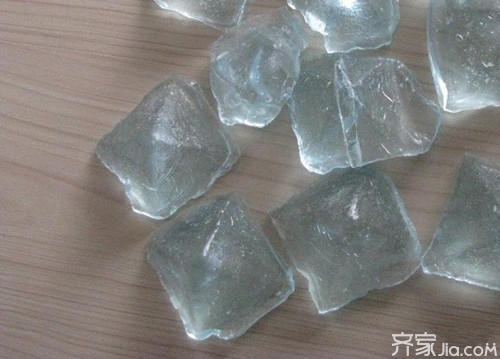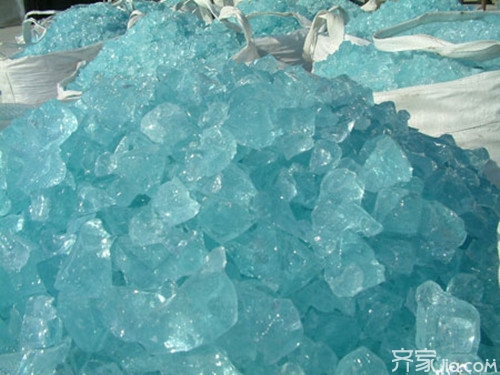
Privacy statement: Your privacy is very important to Us. Our company promises not to disclose your personal information to any external company with out your explicit permission.
Water glass is divided into sodium water glass and potassium water glass, commonly known as silicate. The following small series details the relevant knowledge of water glass.

Water glass chemical composition:
Water glass is a soluble alkali metal silicate material combining alkali metal oxide and silica, also known as silicate. Water glass can be divided into sodium water glass and potassium water glass according to the type of alkali metal, and its molecular formulas are Na2O.nSiO2 and K2O.nSiOz. The coefficient n in the formula is called water glass module, and is silicon oxide in water glass and Molecular ratio (or molar ratio) of alkali metal oxides.
Water glass modulus is an important parameter of water glass, generally between 1.5-3.5. The larger the modulus of the water glass, the harder the water glass is, the harder it dissolves in water. When n is 1, it can be dissolved at room temperature. When n increases, it needs hot water to dissolve. When n is greater than 3, it takes 4 atm or more steam to dissolve. The larger the modulus of the water glass, the greater the content of silica, the viscosity of the water glass increases, it is easy to decompose and harden, and the adhesive force increases.
There are two methods for the production of water glass, dry and wet methods. The dry process uses quartzite and soda ash as raw materials. After grinding and mixing, it is melted at a temperature of 1300-1400° C. in the melting furnace. The solid water glass is produced by the following reaction and dissolved in water to obtain a liquid water glass. Quartzite powder and caustic soda as raw materials, in the high-pressure steamer, 2-3 atmospheric pressure pressure steaming reaction, the direct production of liquid water glass.
The nature of water glass:
1, the higher the bond strength: water glass has a good bonding ability, precipitation of silicic acid gel hardening, there are plugging capillary pores to prevent water penetration.
2, good heat resistance: water glass does not burn, the silicic acid gel drying more intense at high temperatures, the strength does not decrease, even increased. For the configuration of water glass heat-resistant concrete, heat-resistant mortar, heat-resistant clay and so on.
3, strong acid resistance: water glass can withstand hydrofluoric acid, overheating (300 degrees Celsius above) phosphoric acid, higher fatty acids or oleic acid in addition to almost all the role of inorganic and organic acids for the configuration of water glass acid-resistant concrete, acid Mortar, acid clay, etc.
4, alkali resistance, poor water resistance: water glass by adding sodium fluoride sodium, still can not be completely hardened, there is still a certain amount of water glass. Since the water glass is soluble in alkali and soluble in water, the water glass is not resistant to alkali and water when hardened. In order to improve the water resistance, the hardened water glass can be acidified with a moderate concentration of acid.
The use of water glass:
The use of water glass is very extensive. It is used in chemical systems for the manufacture of silica gel, silica, zeolite molecular sieves, sodium metasilicate, silica sol, lamellar silicon, and instant powdered silicates such as sodium silicate and sodium silicic acid. Salt products are the basic raw materials for silicon compounds. In the light industry, it is an indispensable raw material for washing powders, soaps and other detergents, as well as a water softener and a sedimentation aid; it is used in dyeing, bleaching and sizing in the textile industry; it is widely used in casting and grinding wheels in the machinery industry. Manufacturing and metal preservatives, etc.; used in the construction industry for the manufacture of fast-drying cements, acid-resistant cement waterproof oils, soil-curing agents, refractory materials, etc.; for the manufacture of silicon fertilizers in agriculture; and for the use of silica-alumina catalysts for the catalytic cracking of petroleum, Soap fillings, corrugated paper adhesives, metal antiseptics, water softeners, detergent builders, refractories and ceramic raw materials, textile bleaching, dyeing and pulping, mine beneficiation, waterproofing, plugging, subway grouting, timber fire protection , food preservation and adhesives.

1, configure quick-curing waterproof agent
Water glass is used as a waterproof base material, and two, three or four types of hydrazine are added to form a two-, three-, or four-mass fast-curing water repellent. This waterproofing agent generally does not condense more than one minute. The project uses its quick-setting action and adhesiveness, and is incorporated into cement slurry, mortar or concrete for repair, plugging, repair, and surface treatment. Because of the rapid condensation, cement waterproof mortar is not suitable for use as a rigid waterproof layer for roofs or floors.
2, configuration of heat-resistant mortar, heat-resistant concrete or acid mortar, acid-proof concrete
Water glass is used as cementitious material, sodium fluorosilicate is used as coagulant, and heat-resisting or acid-resisting coarse aggregates are prepared in a certain proportion. The limit use temperature of water glass heat-resistant concrete is below 1200 degrees Celsius. Water glass acid-resistant concrete is generally used for storage of acid tanks, pickling tanks, acid-resistant flat surfaces, and acid-resistant equipment.
3, brushing the surface of building materials can improve the material's resistance to seepage and weathering
When the porous material is soaked with water glass, its density and strength can be increased. For clay bricks, silicate products, cement concrete, etc., have a good effect. However, gypsum products cannot be painted or impregnated because sodium silicate and calcium sulphate chemically react to produce sodium sulphate, which crystallizes in the pores of the product and swells significantly, resulting in the destruction of the product.
4. Reinforce the foundation and improve the bearing capacity of the foundation
The liquid water glass and the calcium chloride solution are alternately injected into the formation in turn, and the resulting silicic acid gel is generated and the soil particles are wrapped and filled with pores.
Silicic acid colloid is a water-absorbing frozen gel, which is often in an expanded state due to the absorption of groundwater, preventing the penetration of moisture and consolidating the soil.
5, water glass can also be used as a raw material for a variety of architectural coatings
The fire retardant paint, which is prepared by mixing liquid water glass with refractory filler, is applied to the surface of the wood to resist the momentary flame and reduce the ignition point.

Xiao Bian summary: Through the introduction of the above content, I believe that my friends have a comprehensive understanding of water glass. Want to know more relevant knowledge, please continue to pay attention to Qi family information.
Decoration use
Author:
Mr. Nassen
Phone/WhatsApp:
+8615305363298
Envoyer à ce fournisseur
Author:
Mr. Nassen
Phone/WhatsApp:
+8615305363298
December 11, 2019
December 11, 2019
Envoyer Une Demande

Mr. Nassen
E-mail :
Envoyer Une Demande Numéro De Téléphone:86-536-2117708
Fax:86-536-2117708
Portable:+8615305363298
E-mail :
Adresse De Compagnie:4899,Dongfeng Street, Weifang, Shandong
site mobile


Privacy statement: Your privacy is very important to Us. Our company promises not to disclose your personal information to any external company with out your explicit permission.

Fill in more information so that we can get in touch with you faster
Privacy statement: Your privacy is very important to Us. Our company promises not to disclose your personal information to any external company with out your explicit permission.